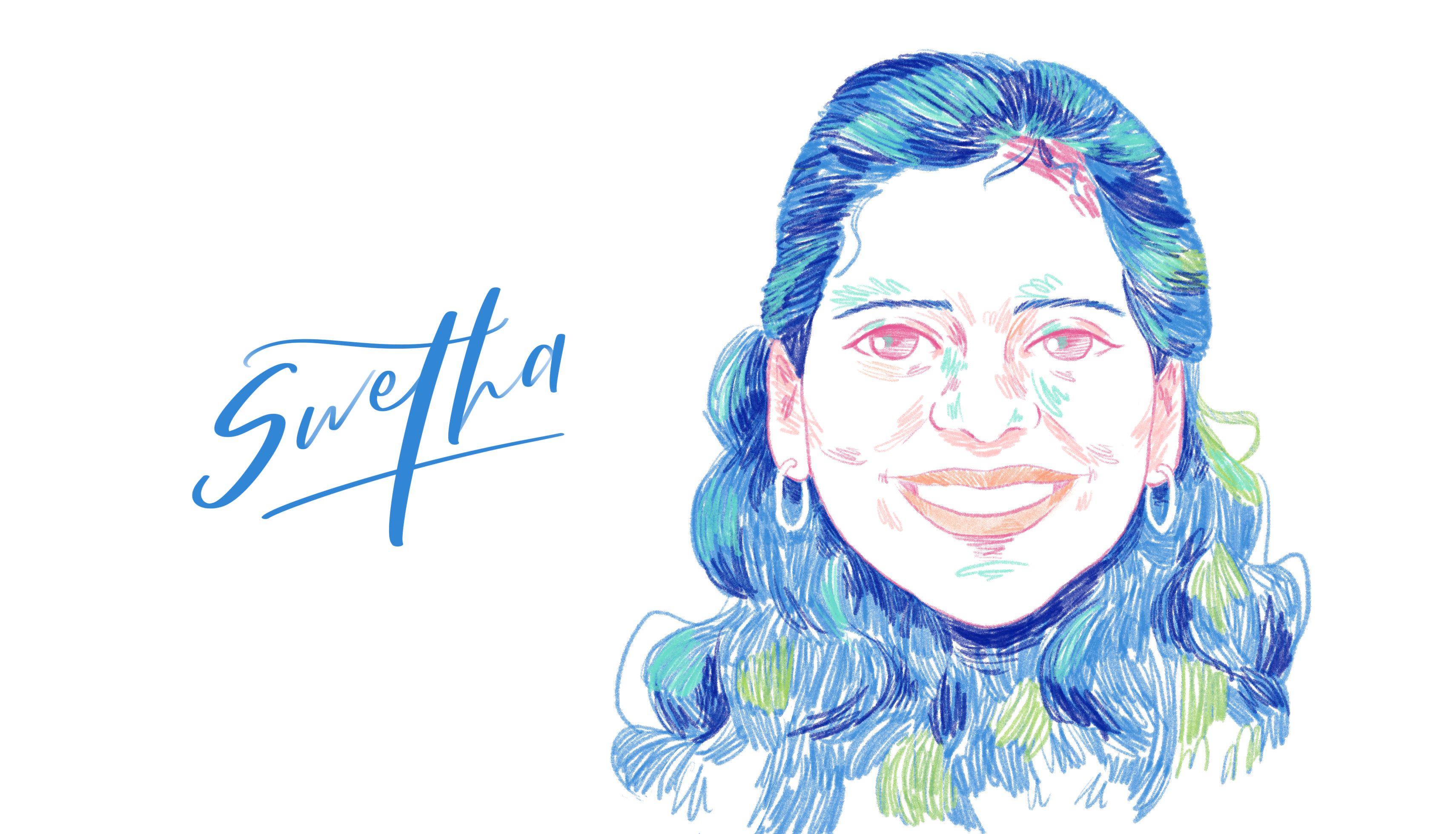Swetha Kolluri, Head of Experimentation, UNDP India Accelerator Lab
By Yun Xuan Poon Joy Lim
Women in UNDP Special Report 2021.

How do you use tech/data to tackle important issues? Tell us about your work.
India’s Accelerator Lab is harnessing emerging technologies such as artificial intelligence, blockchain, Internet of things and social media to tackle complexity in development challenges. We use technology to identify new patterns and trends, to create awareness and behavioral change among end users, new product offers, to assist partners in improving effectiveness at systems level and for policy advocacy. We do so through a combination of inhouse analysis, technical collaborations, data collaborations and unconventional partnerships.
What was the most impactful project you worked on in the past year?
In partnership with University of Nottingham, we have developed GeoAI platform – a digital platform that uses artificial intelligence and space tech to identify hotspots of air pollution from space. The platform has identified 47000+ such hotspots across India and classified them on environmental compliance using machine learning. This is first-of-its-kind AI platform helping environmental regulators to take action!
What are some innovations from the pandemic that have caught your eye?
Some very interesting nextgen applications catering to blue/grey collared jobs have mushroomed in India during the pandemic. It is very interesting how these applications are using voice-based searches and video content to cater to the needs of migrant workers with basic education. Such solutions are apt in the digital era in India where there are more than 600 million users of smart phones and internet is accessible for less than $0.3 per GB of data (as against $8.5 per GB globally).
What is one unexpected learning from 2020?
Inequalities in the digital world are deepening at a very fast rate – both in India and worldwide. Although the access to internet and smart phones are reaching nook and corner of the world at a very fast pace, it is not equitable. Even in the OECD nations the digital divide and opportunity-divide was found among girls and women as well as socially disadvantaged sections. Such trends got magnified during the pandemic when digital-everything became new normal leaving several children out of education for more than a year!
What are your priorities for 2021?
One of my priorities this year is to use data science to promote farm livelihoods through a large-scale policy experiment in India. This would be a crop modelling experiment to influence markets, prices of agriculture commodities, in order to maximise returns to small and marginal farmers. Another priority is to delve into algorithmic bias of AI-powered digital applications using ‘Leave No One Behind’ lens.
What tool or technique particularly interests you for 2021?
I am passionate about AI4Good as well as ResponsibleAI. I see immense possibilities (as well as threats) on use of Artificial Intelligence in social and environmental sectors. The dialogue on ResponsibleAI and digital human rights is a very important one at global level that needs to be steered by UN agencies to appropriately guide a wide range of stakeholders including tech industry, governments and civil society. In this regard, the FATE (fairness, accountability, transparency and ethics) concerns in AI interest me the most.
Which other countries inspire you and why?
There are several countries that inspire me, but of late I have been closely following digital leadership offered by South Korea in the global arena. It is amazing how South Korea promoted and incentivised private sector to innovate on digital technologies with specific focus on fourth industrial revolution technologies. South Korea’s models on digital governance and citizen-centric digital government are also very inspiring.
Who do you admire? Who is your hero?
I have many heroes! I admire people who have depth in their understanding and pursue excellence – Richard Feynman who made science so much fun; Daniel Kahneman for teaching thinking slow and thinking in probabilistic terms, navigating complexities without reaching quick/convenient conclusions. I closely follow the work of female scientists in AI – like Fei Fei Li who works on Human Centered AI, Joy Boulamwini who is one of the first to speak about Algorithmic Justice.
In addition to people, I admire open systems like Wikipedia, Linux, Git have inspired me to think beyond boundaries of teams, organisations, countries. The largest farmers cooperative in the world Amul (India) and Mondragon coops (Spain) demonstrating sustainable and inclusive capitalism are my heroes!